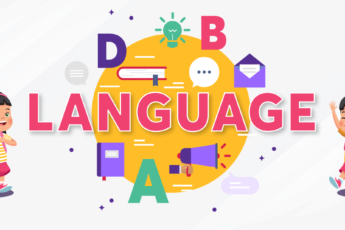Importance of Upskilling Teachers in English Language
Mother tongue impacts a child’s learning abilities and mastery of any language. With the constant growth of English as a global language, students need to learn English as a core subject in school. This applies especially to students who do not speak English at home. Yet, in India, millions of children enter school with little or no command over the English language. Additionally, in India, teaching standards and professional development programs for teachers are inadequate because most teachers are not trained or qualified to teach English as a core language. This is why we need to upskill our teachers so that they can effectively guide students to improve their proficiency in English.
🖊️ Why is there a need for English Proficiency among Teachers?
Conversational English is still considered the language of high culture in most parts of India and throughout Asia. And with the commercialization of the language, many educators in the country feel that it should be prioritized over local languages in schools. But as English-medium instruction has recently gained popularity, some parents see it as an elitist method that splits students into two categories: those who can speak English and those who cannot. Those who favor local languages worry that their children will struggle to compete with others if they don’t learn English.
The challenge of teaching English as a second language is even greater in the education system than it is in everyday life, because teachers must teach students new vocabulary, punctuation, and grammar structures—while also maintaining a tight schedule for covering all the material required by national curricula.
If teachers do not have an adequate command over the English language themselves, they will not be able to model correct pronunciation or writing conventions, nor will they be able to communicate ideas clearly to their students. They may end up changing their native-language speech patterns in order to avoid errors or embarrassment—which could lead to even greater errors being made by their students.
🖊️ NEP 2020
The NEP 2020 asserts that it is vital to teach students local and regional languages. Focusing on core competencies, the NEP views the individual’s overall development as essential to national development. Furthermore, it rightly emphasizes the role of education for parents and children and aims to strike a balance between learning different languages while focussing on the importance of English.
India possesses a large proportion of youth who are raring to be used in the workforce. These youth will become the movers and shakers of the world’s largest democracy, with its influence seeping into almost every facet of the global economy. Therefore, we must create educational systems that will encourage India’s future generations to develop skills, including linguistic proficiency, that are critical for success.
To effectively learn a language, students need a variety of learning tools. These include adequate exposure to appropriate models for pronunciation, communication opportunities, and timely feedback on their progress. To be an effective English language teacher, a teacher needs to be proficient in using English themselves. Therefore, teachers should be trained to deliver quality teaching. They should not just focus on imparting appropriate pedagogical techniques and skills, but they should also work on their own language proficiency.
🖊️ How can Schools Prepare Teachers for Learning English?
To ensure that learners deliver eloquent English, teachers need to refine the manner in which they deliver English lessons. The knowledge of all those new words and phrases is useless unless the students can apply them easily. Therefore, teachers must know how to speak correctly, learn how to structure sentences, and choose their words well.
Public and private schools in India need to develop an action plan that helps teachers to upskill themselves by providing them with the necessary training. Some of these upskilling programs are already in place and need support so that new teachers can participate.
The first step is an online platform for pre-service teachers that allows them to learn from expert educators. Since the pandemic, access to online learning has increased among students, who can access real-time information about their classes, teachers and peers. The same opportunities should be given to new teachers, who need access to resources to help them learn what they need before they even step into a classroom. The second step is creating a network of existing teacher trainers, especially those practicing in international schools, who have experience and can share their ideas with aspiring Indian teachers.
Square Panda India has implemented various teacher training programs emphasizing fundamental level concepts such as phonetics and vocabulary building through speech, games, and activities. To know more visit https://squarepanda.in/




Leave a Comment